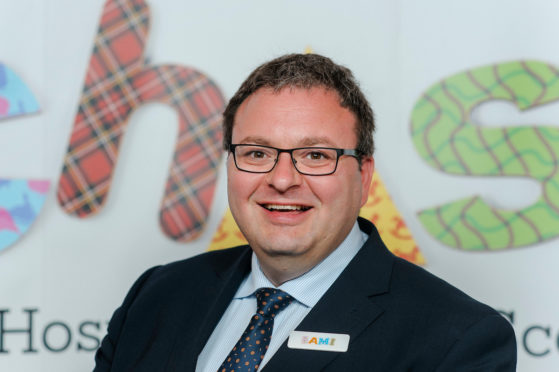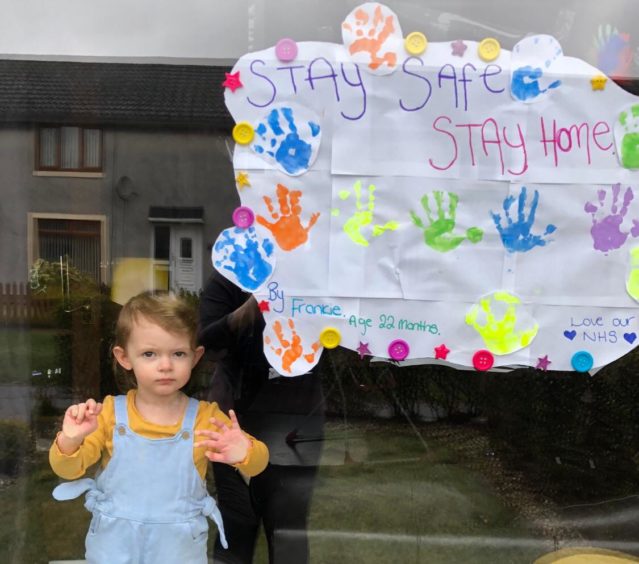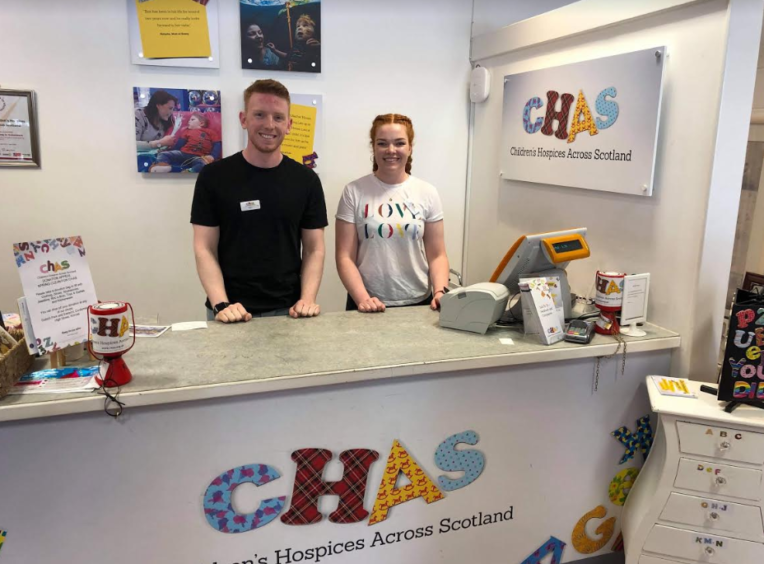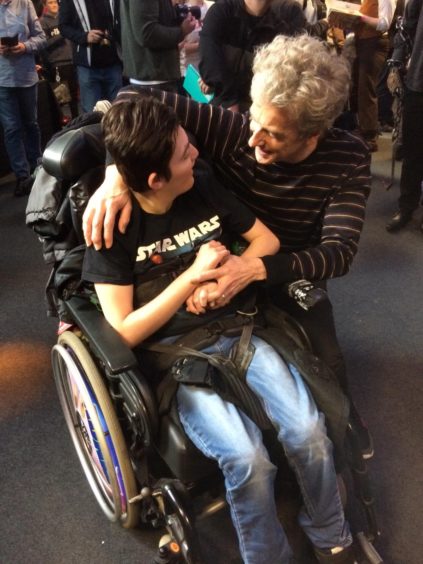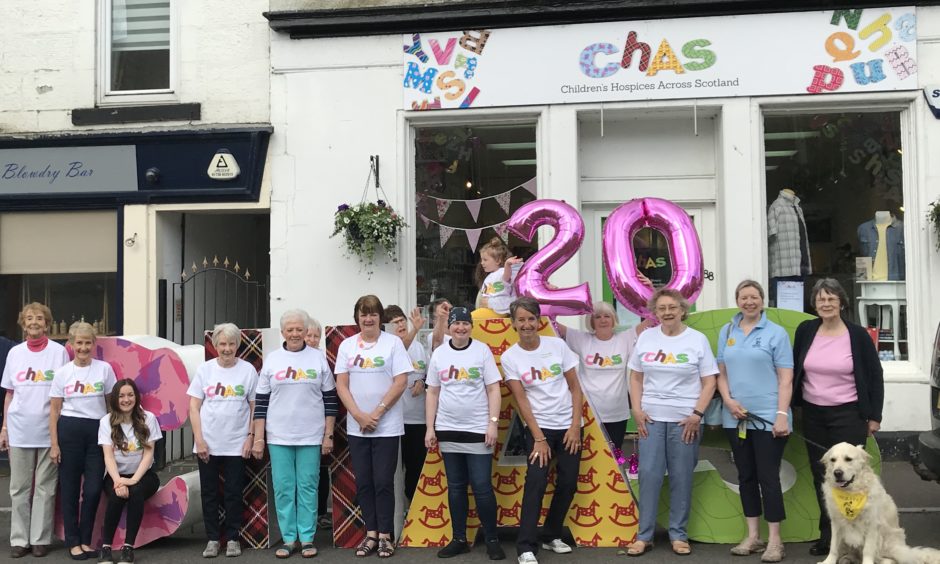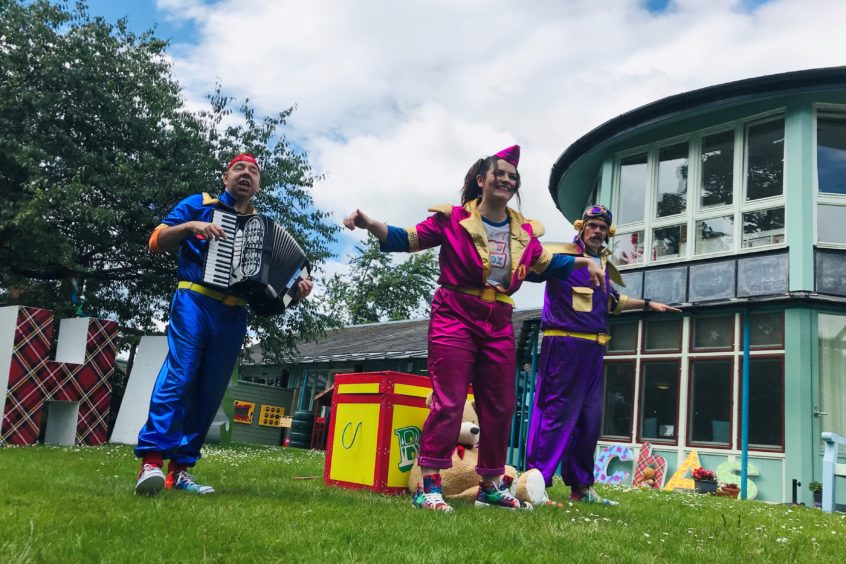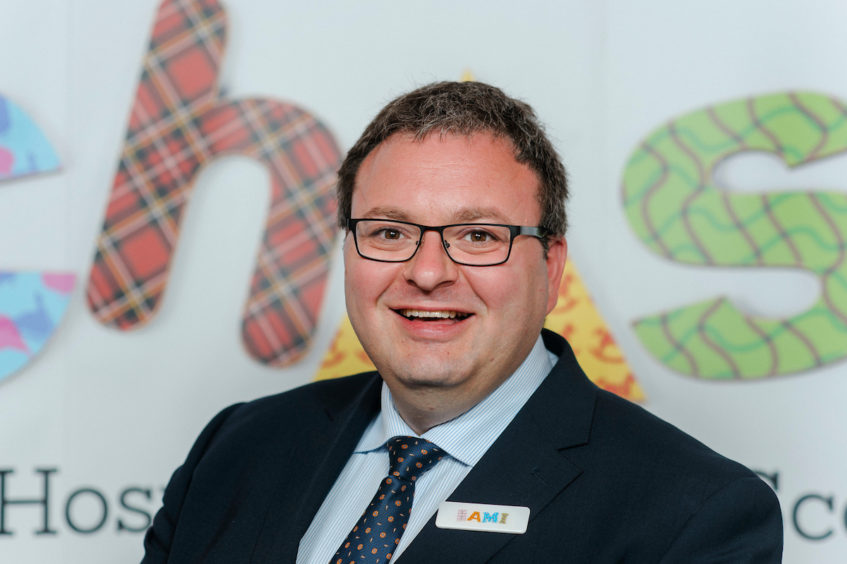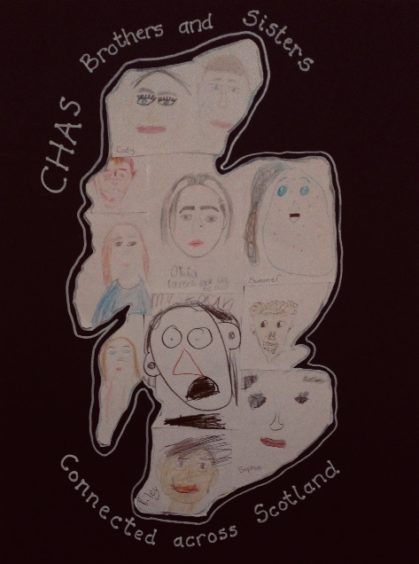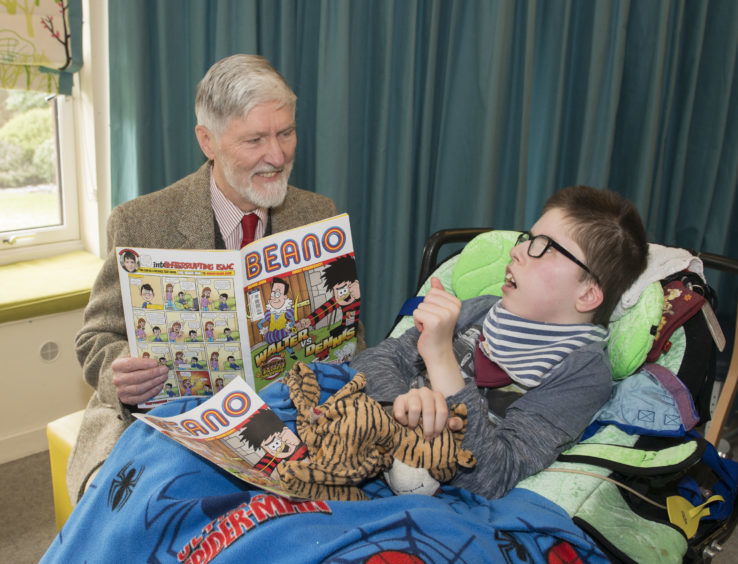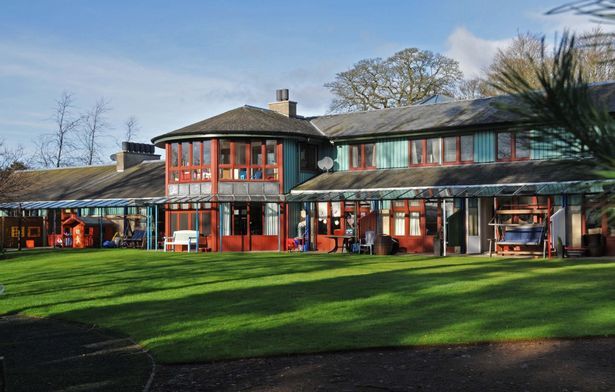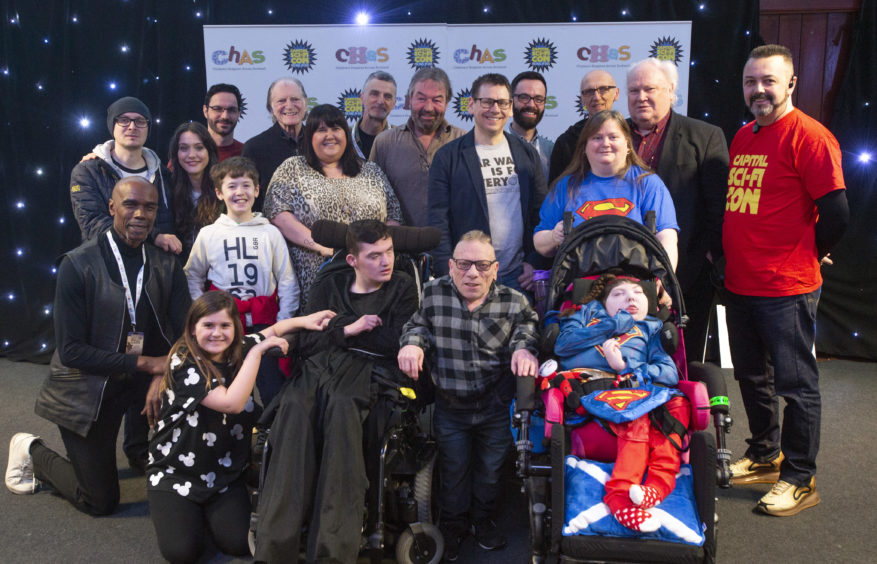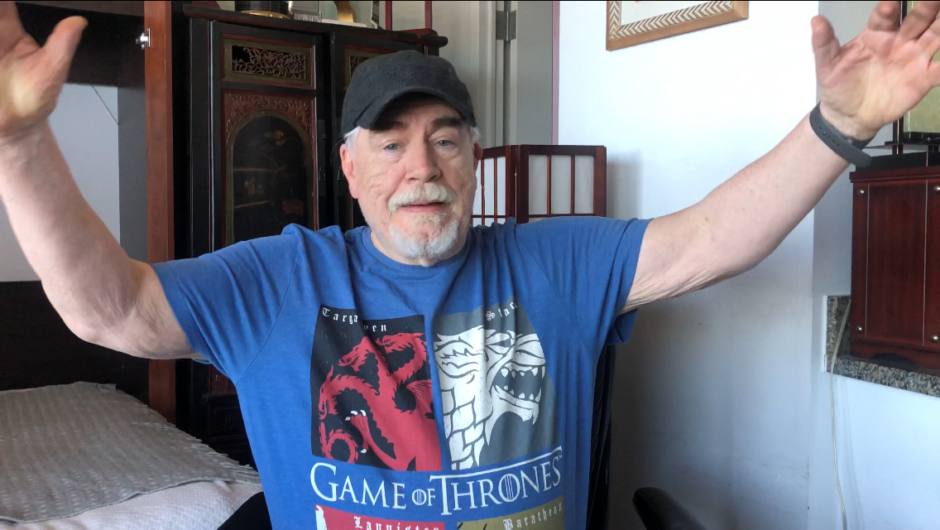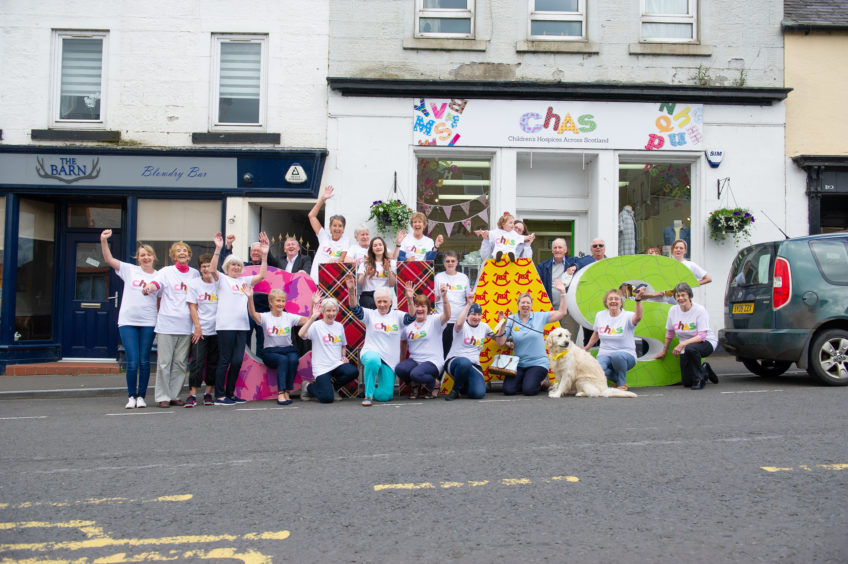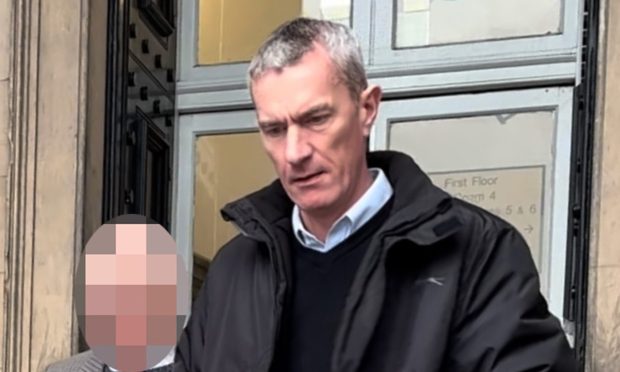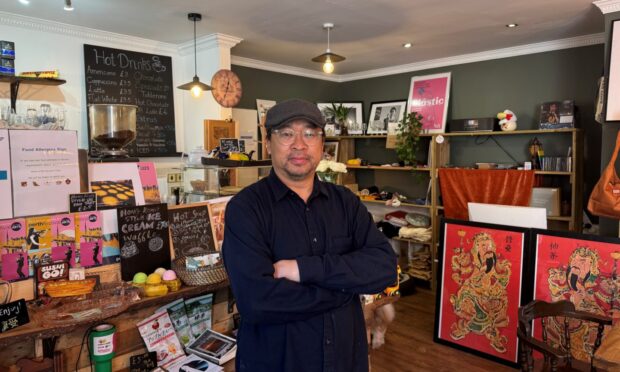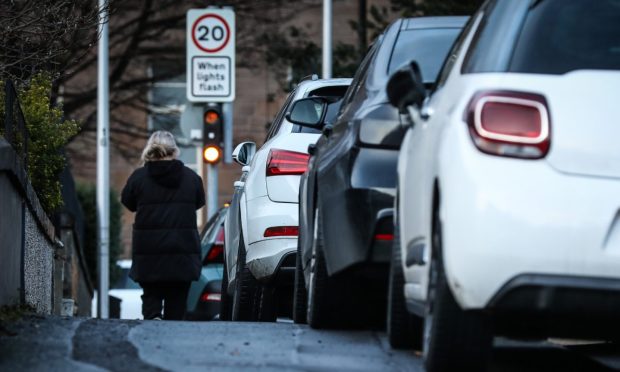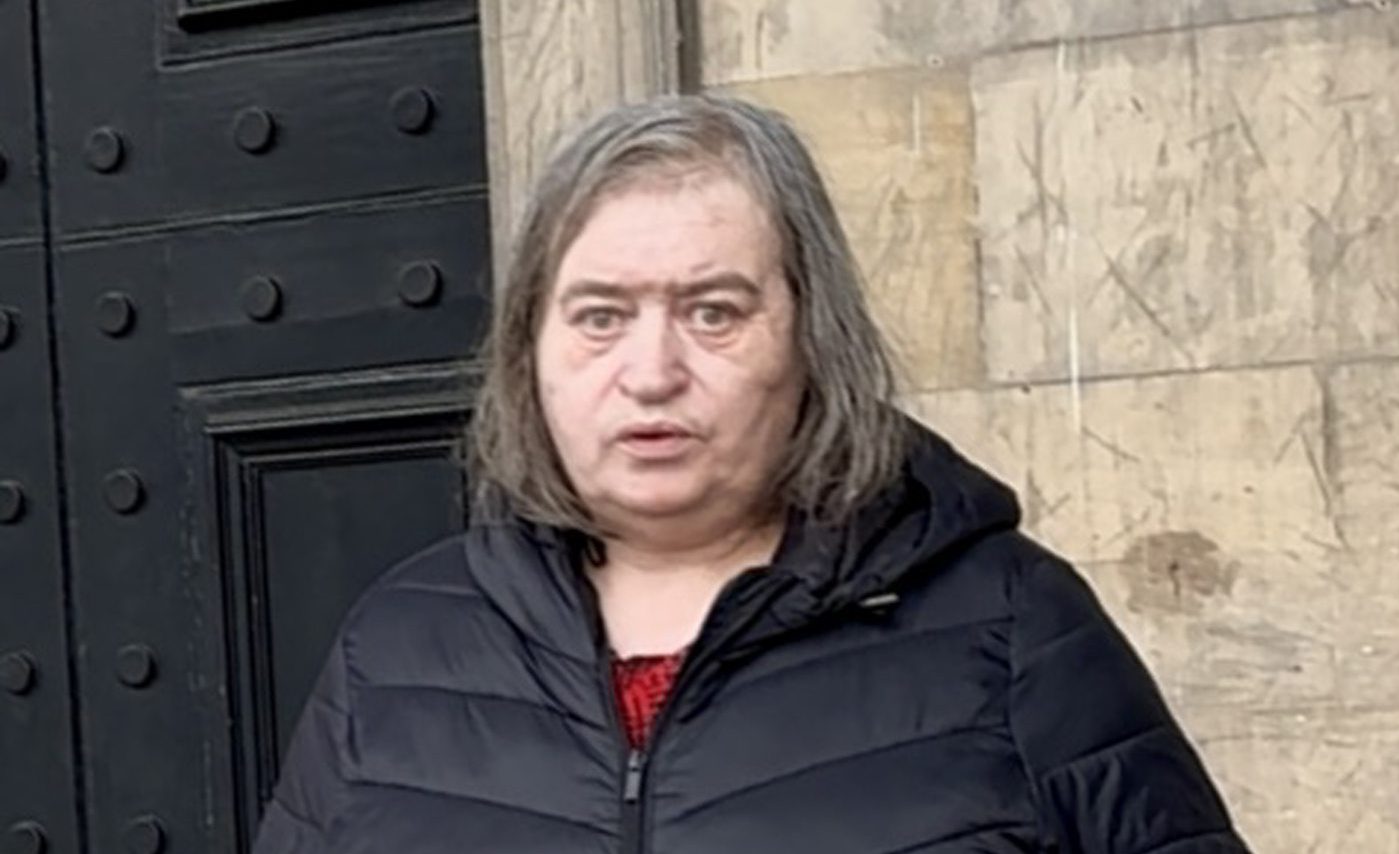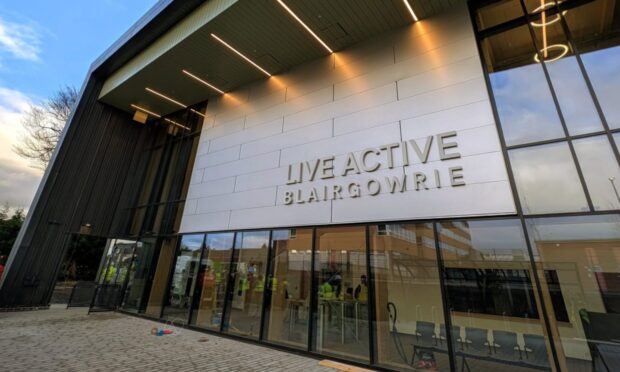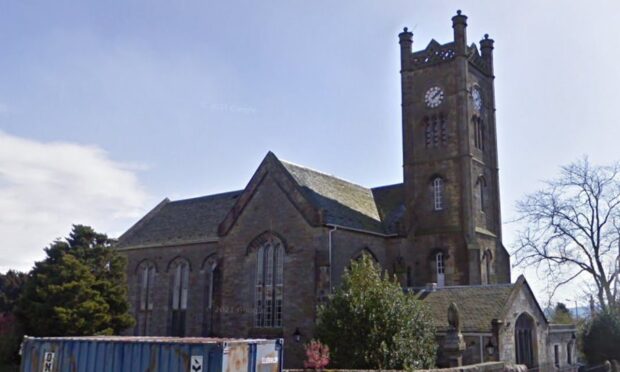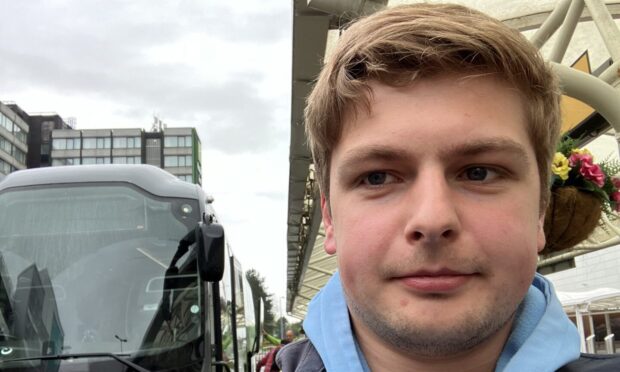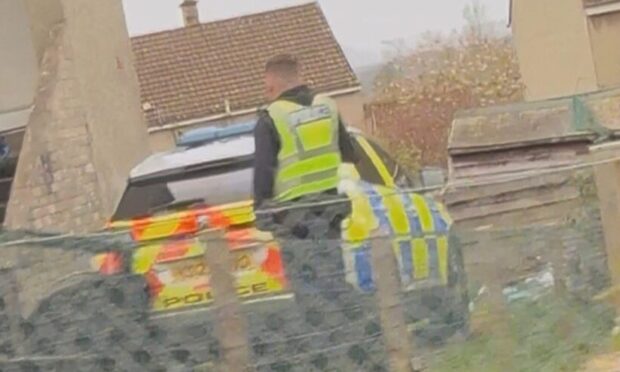Michael Alexander speaks to the new chief executive of Children’s Hospices Across Scotland (CHAS) Rami Okasha about the challenge of coronavirus and his wider vision for the future.
Rami Okasha has just finished a Zoom video conferencing call from home with over 130 of his staff when The Courier phones – via Facetime – to chat about how he is settling into his new role as chief executive of Children’s Hospices Across Scotland (CHAS).
It’s not the first eight weeks he could ever have envisaged when he took up the reigns from outgoing CHAS CEO Maria McGill on February 1.
But like other organisations, CHAS has had to adapt to the coronavirus outbreak, with particular challenges faced as it continues providing support and hospice care for children, young people and their families with life-shortening conditions across Scotland.
“Coronavirus is the biggest thing by a long way right now and it is changing how care is delivered right across Scotland – and that includes CHAS,” said the Dundee-born 40-year-old.
“We are just doing things in different ways to try and protect children and families, to protect our staff, and also to help these families who are just going through the hardest possible times.
“In terms of our hospices which are delivering care, what we are doing is prioritising end of life emergency care.
“For the rest of our staff who aren’t hands on nurses and doctors, they are all working at home.
“I have learned more about Zoom in the last few weeks than you can possibly imagine – but it’s a great way of keeping us connected!”
Kinross and its eight-bed Rachel House is the home of CHAS. But the charity have around 350 staff based in 17 sites across Scotland as well as 800 volunteers and homeworkers in every local authority.
In all, around 480 children are being helped at any one time in hospice, hospital and at home.
Rami explained that many families the charity supports are currently self-isolating at home – some because they have potential Covid-19 symptoms and others because their children are just so vulnerable they are “shielding” themselves from potential infection.
For many families being cooped up can be really difficult – especially if they live in a small property and have children with complex needs. Some staff are also having to self-isolate.
However, CHAS is finding new ways to use technology to help people.
“We are using video calls,” he said. “I was talking to one of our nurses the other day who phones a dad, who lives on his own. He said ‘you are the first person I’ve spoken to for a week. Thank you for phoning’. It’s just so difficult!”
While Rachel House and Robin House at Balloch remain open, Rami said a virtual hospice has been established to offer vital support and entertainment by phone and video to those who are self-isolating or unable to visit.
Activities include virtual storytelling, virtual Clowndoctor visits and other fun activities at home.
Families can also access nursing, medical and pharmacy advice as well as support in bereavement, financial advice and information about coronavirus.
CHAS is also supporting the NHS and Scottish Government’s national effort.
Considerable uncertainties about the impact of Covid-19 still lie ahead. But staff working from home are helping to sustain care packages for children at home and CHAS is working with Scotland’s three children’s hospitals.
“We are still open, we are still delivering our services, but we are really focusing on that emergency end of life unplanned care, because that’s the most important bit – that’s where we have to be,” he said.
“For the last month we have been quite strict. Normally our hospices are open places where people are welcome to come and visit.
“But non–essential staff are now not there to cut down those possible routes of transmission and to focus on the essential aspects of care.
“That’s mirroring what the NHS are doing. They are removing people from hospitals that don’t have to be there and finding others way to support them.”
Rami, who joined the organisation in 2018 as Director of Transformation and Innovation, describes it as “an extraordinary honour, both personally and professionally” to be asked to lead the CHAS team.
Three children a week die from a life-shortening conditions in Scotland, and CHAS wants to be there for all of them.
However, while he has a clear vision of what the charity aims to achieve, he’s also conscious that considerable challenges lie ahead – particularly when it comes to funding and raising the £19 million required to keep CHAS going each year.
Born in Dundee, Rami lived in St Andrews until the age of two when his university academic parents got jobs in Cork and the family moved to Ireland. Rami came back to Scotland to study English at Aberdeen University.
He supported further and higher education students as NUS Scotland president; worked for Scotland’s largest teaching union the EIS supporting teachers, and also had a brief spell in politics in 2008 when he was head of communications for Scottish Labour – a part of his life which he now insists is “well behind” him.
It was the six years he spent working for the Care Inspectorate – Scotland’s largest scrutiny and improvement body – in Dundee, however, that he realised his passion for children and adults social care services.
As Executive Director of Strategy and Improvement, he led the Care Inspectorate’s emergence as an improvement support body, and directed modernisation of scrutiny methodology, intelligence, organisational development, corporate reporting, and involving people who experience care.
He co-led the development of the Scottish Government’s Health and Social Care Standards, working with people who use and provide care to ensure these are based on human rights and wellbeing.
He chaired the Scottish Government’s reporting and monitoring group for implementing the duty of candour across health and social services.
The more he learned about the often unspoken world of support for vulnerable people, the more he realised what difference really good care makes. Seeing that up close, he wanted to be more hands on and, after six years at the Care Inspectorate, left to join CHAS – initially working to develop new models of care and reach more families before the top job came up at the end of last year.
It’s almost 30 years since CHAS was formed by a group of professionals and parents of Scottish children with life-shortening conditions who had travelled to England for hospice care.
Work to build Rachel House, Scotland’s first children’s hospice, started at Kinross in December 1994. The land to build Rachel House in Kinross was donated by the Montgomery family who owned Kinross House which stands next to the hospice.
Rachel House was named after Lady Rachel Workman MacRobert in recognition of a £2 million donation by The MacRobert Trust.
In December 1994 celebrity supporter Philip Schofield cut the first turf, assisted by children from Kinross Primary School. The hospice was opened in March 1996 by The Princess Royal.
Five years later a £10 million fundraising appeal to build Scotland’s second hospice Robin House in Balloch near Loch Lomond got underway.
Both hospices aim to be a ‘home from home’ for families with a range of facilities including a hydrotherapy room, large accessible garden and lots of areas for relaxing and fun. They also have areas for reflection, bereavement support and care.
But CHAS’ reach goes far wider with Diana Children’s Nurses working alongside NHS staff, and with other care staff in hospitals to provide clinical leadership and support in the planning and delivery of palliative care.
The CHAS at Home team also care for children and young people in their own homes across Scotland in between hospice visits or when they are too ill to travel.
Rami said his immediate vision for CHAS is to respond to what children and families need right now: that is they need emergency care, they need help at home and they need practical support when they are self-isolating.
But looking further ahead, he also has a wider vision based on experiences for children and families, making sure the chance to benefit is everywhere, consolidating excellence and supporting everyone in CHAS – especially staff.
“It’s terrifying to be told your child is going to die young,” he said.
“We are there to be with families and support them through that even if it’s really tough.
“Some of that is emotional support, some is just practical – things that other families take for granted that children who are really sick just can’t do. We are there to make the impossible possible.
“We also want to make sure the chance is everywhere. Rachel House and Robin House are amazing places and they are gong to stay. But we know families want other things. We are growing our at home services. Over the last five years the number of home support visits we do has gone up by a third.
“We also need to consolidate the excellence of what we do. CHAS is great at fundraising but we need to raise millions of pounds per year to deliver our services, to grow those services. We need more money.
“Fundraising is a challenge right now because we’ve had to postpone some big fundraising events such as the Kiltwalk which is huge for CHAS, and dinners. We are finding and adapting to new ways of giving.
“For example, comedian Kevin Bridges got in touch out of the blue the other week and wrote a cheque for £20, 000. He is encouraging others to do that. People are very supportive and kind and generous. We need to keep at it.
“But we also can’t forget our staff. Because it’s hard to work in a children’s hospice. Although the hospices are oddly happy places where sad things happen, for our staff who are working in there day in day out at the coalface of trauma, we need to make sure our staff are well supported, well trained and developed, and have the confidence to support families in the best possible ways that they can.”
In general terms, Rami said his vision was about moving from “just being a charity that delivers hospices to being a national organisation that supports children and families working in complete partnership with the health service and local authorities.”
In short, he sees his role as the “temporary guardian” of CHAS.
“Marie McGill my predecessor was a fantastic chief executive,” he added.
“My job is to support CHAS and to grow and develop in the years ahead. That is something that is a huge honour. It’s a huge challenge. But I think I have the best job in the world because when you are supporting a great team of people who are delivering care for families who are going through just the hardest thing you can imagine, it’s a huge privilege.”
Rami also wanted to highlight the support given to Rachel House over the years by the community of Kinross.
“There has always been a really good relationship with the people who want to support and wanted it in the area,” he said.
“People in Kinross have been very proud to have this on doorstep, and we thank them.”
